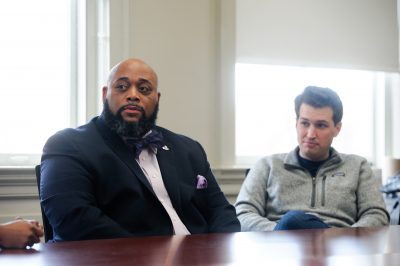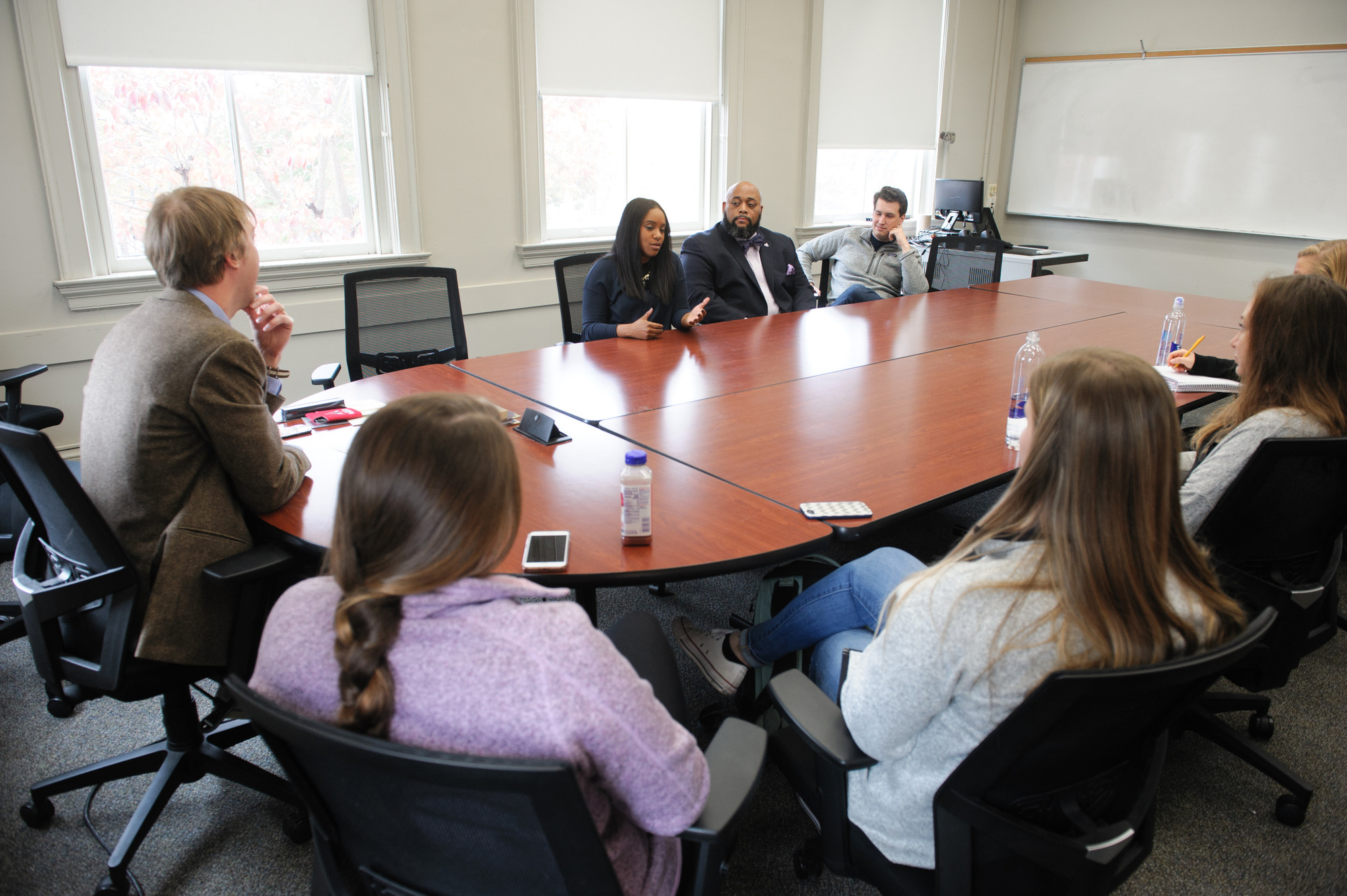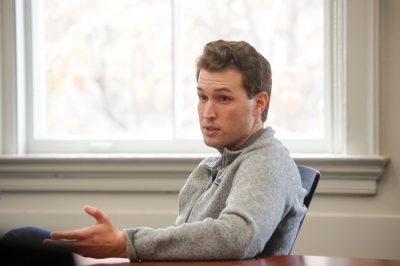The guests included a city council member, a nonprofit employee who helps high schoolers aim for college, and a Lynchburg graduate who oversees an initiative to fight poverty. The students have been studying how different cities around the country have made changes to build community, so they were ready with questions about social services, education, and even marketing the city.

In addition to sharing their perspectives on those issues, the visitors shared their personal stories. All three are originally from Lynchburg and are deeply involved in efforts to improve the quality of life for their hometown.
Lynchburg Assistant City Manager John Hughes ’98, ’00, ’09 MBA described the challenge faced by the city’s Bridges to Progress initiative, which aims to help families move out of poverty. “I like to think of it as a movement more than a program,” because a program tends to have an expiration date, he said. “A movement is more fluid.”
He said one of the biggest challenges is to build bridges between social circles. To do this, he has focused on fostering community interaction. “If you’re in the same group of people who have similar circumstances, there’s no way to reach up,” he said. “There are a lot of connections going on. Just sitting across the table from people means a lot in terms of getting a leg up.”
One student asked Leidra McQueen, director of the Beacon of Hope Future Center at Heritage High School, how her academic background in sociology impacts her work. She described the importance of knowing the forces that shape a person’s life as she is coaching a student who is exploring options for higher education.
“We get to be a part of that positive shaping,” she said. “We get to influence the city and the city schools culture, and we get to give the students some hope in their own future.”

Her organization recently launched the Stay Close, Go Far Promise Scholarship Program to help local high school graduates attend local colleges, including University of Lynchburg. The third speaker, city councilman Beau Wright, praised it as one of the most innovative programs created in the city.

Wright also discussed the importance of bringing people together across ideological lines to make the city a better place. “Do you feel like you’re in a bubble?” he asked. “Part of being a global citizen is getting out of your comfort zone and talking with people who think differently than you do. If we really want to be part of the community, trying the best you can to understand other people’s experiences is necessary.”
McClure asked the speakers to suggest where the students can start with community improvement efforts. Both McQueen and Hughes advised them to start by leveraging their passions.
“I want you to be excited about the things that wake you up in the morning, and giving those things back to your community,” McQueen said. “Be fully you.”
Hughes shared his experience of coming to Lynchburg as a music major, but switching very quickly to social sciences and, later, adding business administration. “Figure out what that passion is, and just do that,” he said. “If you’re really honest with yourself, you’ll know what it is. Then use that to make a positive difference in the community.”
Sociology major Cecilia Roseo ’19 said the class has been great to experience during her senior year, when she’s exploring different ways to apply her sociology degree. “This class has really opened my eyes to a lot of opportunities,” she said, adding that the guest speakers have really brought concepts to life. “They’ve had so much impact in our community.”

